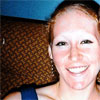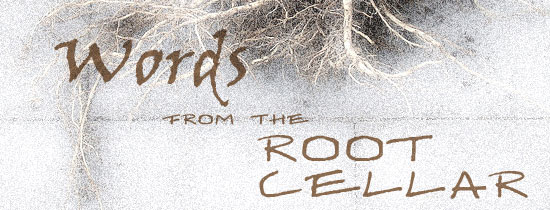On Good (Reading) Health
by Axie Barclay
If we are what we eat, as the old saying goes, we are also what we read. Just as pizza and chips or a diet solely of broccoli doesn’t fulfill all of our nutritional needs, our reading diet should also be varied to optimum literary health.
Like the food pyramid, start with fruits and veggies. These are the classics, from Greek plays to Man Booker Prize winners, some yummy, others you just swallow and grimace, but you still come away feeling a little healthier all the same. Tolstoy (who I have to admit not having the testicular fortitude to tackle yet), the prolific Dickens, the Bronte sisters (Anne and Emily being every bit as wild and skilled as their more recognized sister), Dante’s The Divine Comedy, Jane Austen, and so many others. These are books people return to again and again over the years, and for good reason. They touch us, impact us somehow, and cause a reaction, either positive or negative, leaving us changed by the end of the story. Poetry can also have this effect, Elizabeth Barrett Browning, Anne Sexton, too many to name really. And then modern literature in Peter Carey, Graham Swift, Arundhati Roy, A.S. Byatt, and the list goes on and on. But these are the powerhouses of reading. These deal with the big themes, life, death, love, loss, grief, and society. They scare you, empower you, make you laugh, cry, and rage, maybe in the same paragraphs. It’s not fun “beach” reading, but the experience itself (one of my favorite memories is a summer in high school reading Jane Austen and listening to a Crazy Town album over and over) may be a fun one. All in all, although they are “hard,” classics are classic for a reason and reading them will make you a more well-rounded individual, if you put the work in. For a more in-depth examination of why read the classics, check out “The Contextual Life” column here on Portland Book Review.
Next in the food pyramid comes protein, the meat and beans of the structure, which contains the philosophy, the science, everything from quantum physics to behavior of bees. This is the heavy lifting, the stuff that builds bones, brains, and makes most want to tear their hair out. But whether its eggs or fava beans or grass-fed beef, this stuff will put hair on your chest, even if you want to tear it out of your head. A short list includes: Zen and the Art of Motorcycle Maintenance by Robert M. Pirsig, A Short History of Nearly Everything by Bill Bryson, 1776 by David McCullough, and pretty much anything else in the non-fiction section of the bookstore or library. This is the stuff that makes you think, ponder, examine life more closely. These are facts and figures, not self-help stuff, the latest diet craze, relationship panacea or cookbook, protein in books encompasses meaty stuff, something you can really sink your teeth into, wrestle with, rail against, and come to some kind of accord by the end. We don’t all agree with Nietzsche, some of us will probably never read him. After all, there are far too many books in the world, as Diane Setterfield points out in The Thirteenth Tale, to read in one lifetime. The art is picking and choosing the ones that balance us and make us more fulfilled, well-rounded individuals.
After proteins, it’s on to the grains. While this category can contain empty calories in the form of refined grains like white flour and ready-to-eat breakfast cereals, which in the book world would encompass a variety of unfortunate genre fiction that is read in an hour or thrown down in disgust at the stilted dialogue and flat characters, there’s also whole grains to choose from. Oatmeal, whole wheat, popcorn (sans butter please!) and granola. Quality genre fiction can expand the mind and challenge as much as philosophy can. Diana Gabaldon, Laurell K. Hamilton, Anne Rice, Patricia Briggs, Richelle Mead, Tamora Pierce, Elizabeth George, Elmore Leonard… the list is sprawling. The point is, this stuff may be fiction, but it doesn’t have to be Harlequin romance and can have an oatmeal and flaxseed stick-to-your-ribs-type of substance. This is again, a huge category, so rather than waste your time guessing check back with Portland Book Review often to get the scoop on the latest fiction. (Can’t blame a girl for putting in a plug right?)
Last but not least, the sweet stuff and oils, the romance novels, bad sci-fi, etc. We all have our guilty pleasures. I’m not trashing Harlequin romance. If that blows your hair back, your skirt up, and just flat puts a smile on your face, by goodness golly read it. But just like cupcakes, don’t let that be all you consume. (For those of us who would rather skip the bodice ripper, here’s a list of bad opening lines to romance novels. It made me smile.) In the end, if someone goes too heavy on any of these, it throws the diet out of whack. But if you can maintain a healthy diet, a careful balance of fiction and fact, walk thirty minutes a day, and drink plenty of water, a healthy diet of food and books has all they need to do their job for your health.
 Axie Barclay is a Michigan writer with a cow-habit. Having discovered the joys and potential for growth in alternative agriculture, she quests ever longer and harder for ways to combine farming and writing into a business. When not milking cows, making disgruntled noises at the latest disgusting thing the heeler dogs dredge up, riding horses, or keeping the fence up around her small beef herd, she’s holed up reading an eclectic array of books or tapping out pages. When not working, she enjoys kicking back with her honey, family, and friends at a bonfire with some beers. Chat her up on Twitter and Facebook, /axieb, or barclayfarmsandlit.blogspot.com where she delves into literature and agriculture with a relish… and occasionally ketchup. Soon to be homemade.
Axie Barclay is a Michigan writer with a cow-habit. Having discovered the joys and potential for growth in alternative agriculture, she quests ever longer and harder for ways to combine farming and writing into a business. When not milking cows, making disgruntled noises at the latest disgusting thing the heeler dogs dredge up, riding horses, or keeping the fence up around her small beef herd, she’s holed up reading an eclectic array of books or tapping out pages. When not working, she enjoys kicking back with her honey, family, and friends at a bonfire with some beers. Chat her up on Twitter and Facebook, /axieb, or barclayfarmsandlit.blogspot.com where she delves into literature and agriculture with a relish… and occasionally ketchup. Soon to be homemade.

